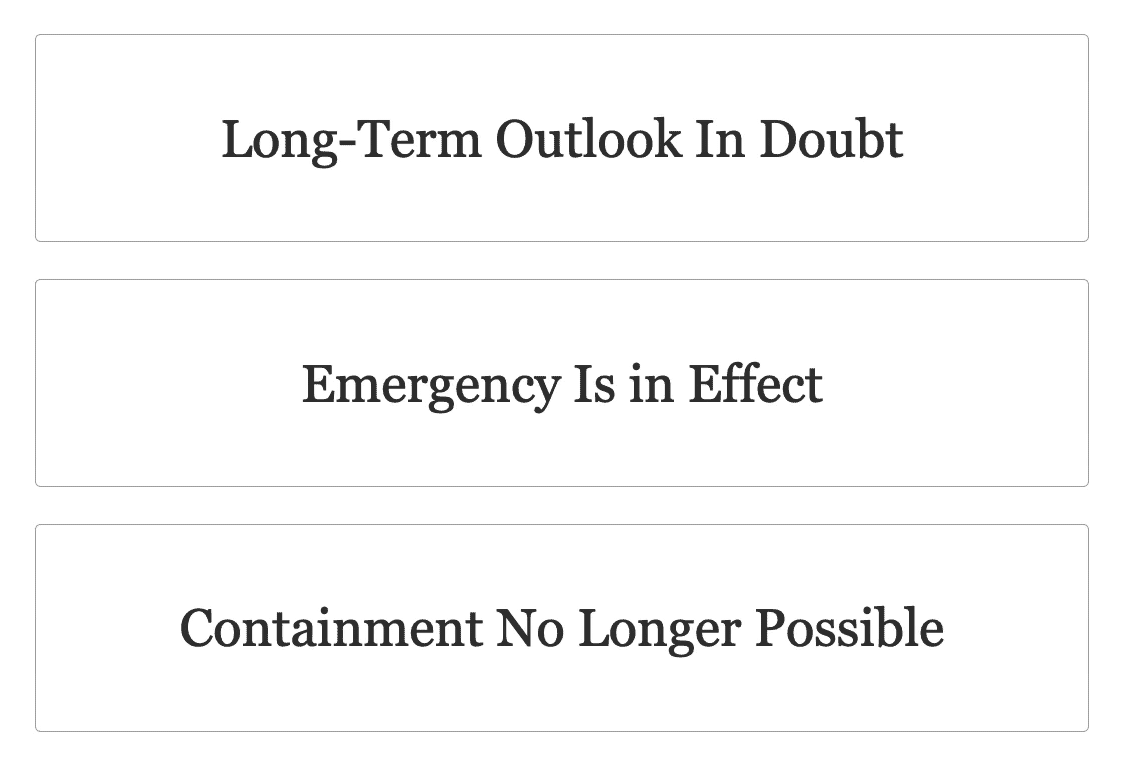This morning, way too early if you ask me, the Gizmodo Slack channel was dosed with acid reality, momentarily shattering a cosy illusion of purpose and the structure of days spent on the internet. I stared down my life, past, present, and future — thanks to The Endless Doomscroller.
You may not call it doomscrolling, but if you own a smartphone, you’ve probably done it. It’s when you turn off the TV news and optimistically escape to bed with a book, then wonder what the case count was in your city yesterday, so you Google the New York Times tracker, and then you notice the latest tweets and get sucked into the app, and then suddenly you realise it’s 3 in the morning.
The Endless Doomscroller website, created by artist and professor Benjamin Grosser, is what it sounds like: A page where you can scroll on and on in purgatory, skimming terrifying phrases, beneath The Endless Doomscroller masthead in a New York Times-esque font. A sample:
Deaths Continue
Numbers Worsen
Containment No Longer Possible
Kindness Elusive
No End In Sight
Cases Spike
Borders Continue to Close
Demands Ignored
The Numbers Look Bad Again
States Are Getting Clobbered
Why Are We Still Waiting?
Experts Say Luck May Have Run Out

“Wow, it’s exactly like Twitter, but no one is telling me to kill myself,” Gizmodo senior reporter Bryan Menegus observed. Another useful distinction is that each phrase looks like a button, but clicking it leads nowhere. Unlike every other website, it doesn’t spawn tabs.
Per the project’s description, The Endless Doomscroller is intended to shuck social platforms’ addiction-driving embellishments down to the naked content. “By stripping away the specifics wrapped up in each headline and minimising the mechanics behind most interface patterns,” it reads, “The Endless Doomscroller offers up an opportunity for mindfulness about how we’re spending our time online and about who most benefits from our late night scroll sessions.”
Grosser told Gizmodo that he published the work in mid-July after finding himself compulsively navigating through bad news late at night during the pandemic. “Certainly part of my reaction is a protective defence in the face of pandemic, a need to stay informed in order to keep myself safe,” Grosser said. “But my doomscrolling isn’t just a natural reaction to the news of the day — it’s the predictable outcome of a perfect yet evil marriage between a populace stuck online, social media interfaces designed to game and hold our attention, and the realities of this existential global crisis.” Grosser said he drew primarily from r/coronavirus, r/politics, Twitter, Facebook, The New York Times, and The Washington Post.
Grosser has created similar tools to de-amplify social media, including the Twitter, Facebook, and Instagram Demetricators, browser extensions that hide the like, comment, retweet, notification, and follower counts, resetting everybody’s social score to zero. It’s a gift to the people, given that it’s accepted as fact that metrics were designed to rewire our brains.
What if news was less like a flat circle and more like a flat bulletin, The Doomscroller asks? In a more perfect world, we could have all of the doomscrolling without the doomspiral. Reader, you can get out while there’s still time, damn it.
